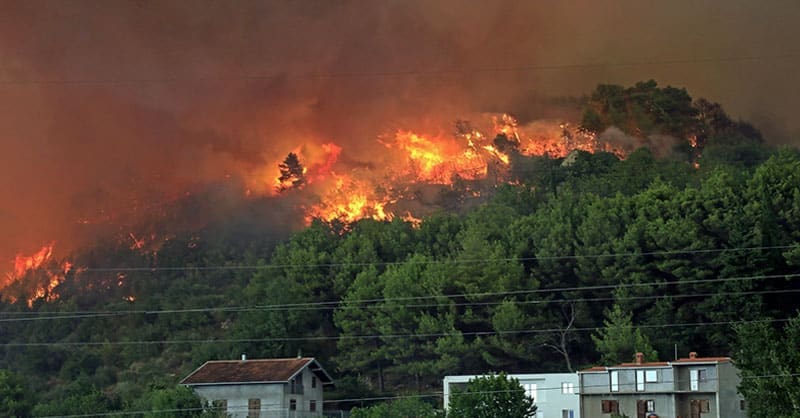Proposed Regulation Will Raise Rates but Will Not Stop Home Insurance Companies’ Market Boycott, Says Consumer Watchdog
Los Angeles, CA – Insurance Commissioner Ricardo Lara’s proposal to let insurance companies use private black-box models and AI to predict the risk of catastrophic wildfires will raise home insurance rates without transparency or accountability, Consumer Watchdog will testify at a Department of Insurance workshop this afternoon.
Commissioner Lara’s proposal does not require testing of private models to make sure they are accurate and fair, does not propose uniform standards for their use, nor does it require approval of models’ reliability before insurers can use them to raise rates. The proposal keeps models secret by requiring any public interest organization, public official, or journalist seeking to access information about a model’s impact on insurance prices to sign a nondisclosure agreement. Contrary to Commissioner Lara’s public statements, no independent panel of experts would review or approve a model for use.
California law passed by the voters in Proposition 103 requires insurance companies to disclose everything that has an impact on insurance prices. The proposal violates that requirement. Consumer Watchdog has urged that California create a public model that would be fully open to public scrutiny.
“Mandating non-disclosure agreements to meet the confidentiality demands of private black box modelers will prevent regulators and independent public interest groups from testing models’ accuracy and from sharing their analysis with the public,” said Carmen Balber, executive director of Consumer Watchdog.
“Catastrophe models will simply be tools for insurance companies to charge more unless Commissioner Lara agrees to public scrutiny into how models impact prices, requires review and approval of their design and use, and requires that insurance companies use them to provide consumers and communities with actionable information about how to reduce their premiums by reducing their own climate risk,” said Balber.
Read the testimony here.
Sign up to watch the Department of Insurance “Catastrophe Modeling and Ratemaking” Workshop at 2pm Tuesday, April 23rd.
The rule also proposes expanding the use of catastrophe models far beyond wildfire loss, allowing the Commissioner, at his discretion, to approve their use in any line of insurance, such as automobile coverage.
Consumer Watchdog’s testimony notes that even in Florida, better known for passing insurance industry-friendly legislation than for robust consumer protections, the state built a public hurricane catastrophe model that is open to public scrutiny. For decades, Florida has also had an expert commission to test, review and approve all catastrophe models insurance companies use in the state.
In July 2023 testimony before the Department of Insurance, Consumer Watchdog presented additional concerns with models’ inaccuracy, variability and bias, problems that highlight the need for model transparency.
In September 2023 testimony, Consumer Watchdog highlighted the financial conflicts of interest of some Wall Street catastrophe modeling companies that should bar their use in California.
Insurance Commissioner Lara’s “historic agreement” with insurance companies last September included allowing the industry to use black-box catastrophe models to set insurance prices. Documents obtained by Consumer Watchdog under the Public Records Act reveal that the only consumer benefit of the plan, a “commitment” by home insurance companies’ to resume sales in areas they say are risky, is a false promise. The legislation Lara’s plan is based on would not require insurers to offer comprehensive home insurance to homeowners. Insurers could instead offer bare-bones FAIR Plan-equivalent policies, leaving consumers no better off than they are today.
Consumer Watchdog said in order to get consumers insured, insurance companies should be required to cover every homeowner who meets state standards for wildfire risk reduction, including home hardening and brush clearance. Insurance companies that refuse should be barred from the home and auto insurance markets for five years.










































